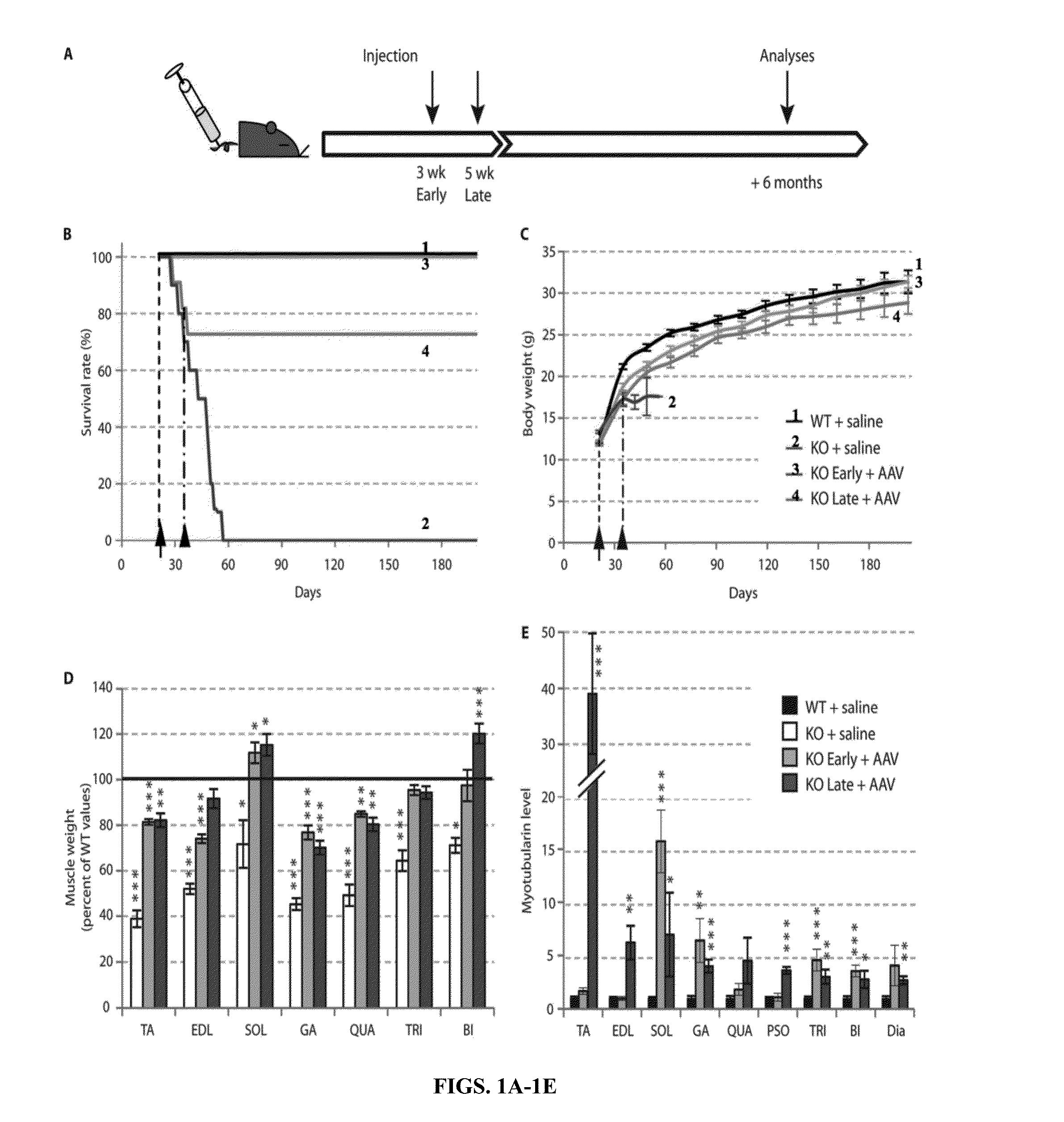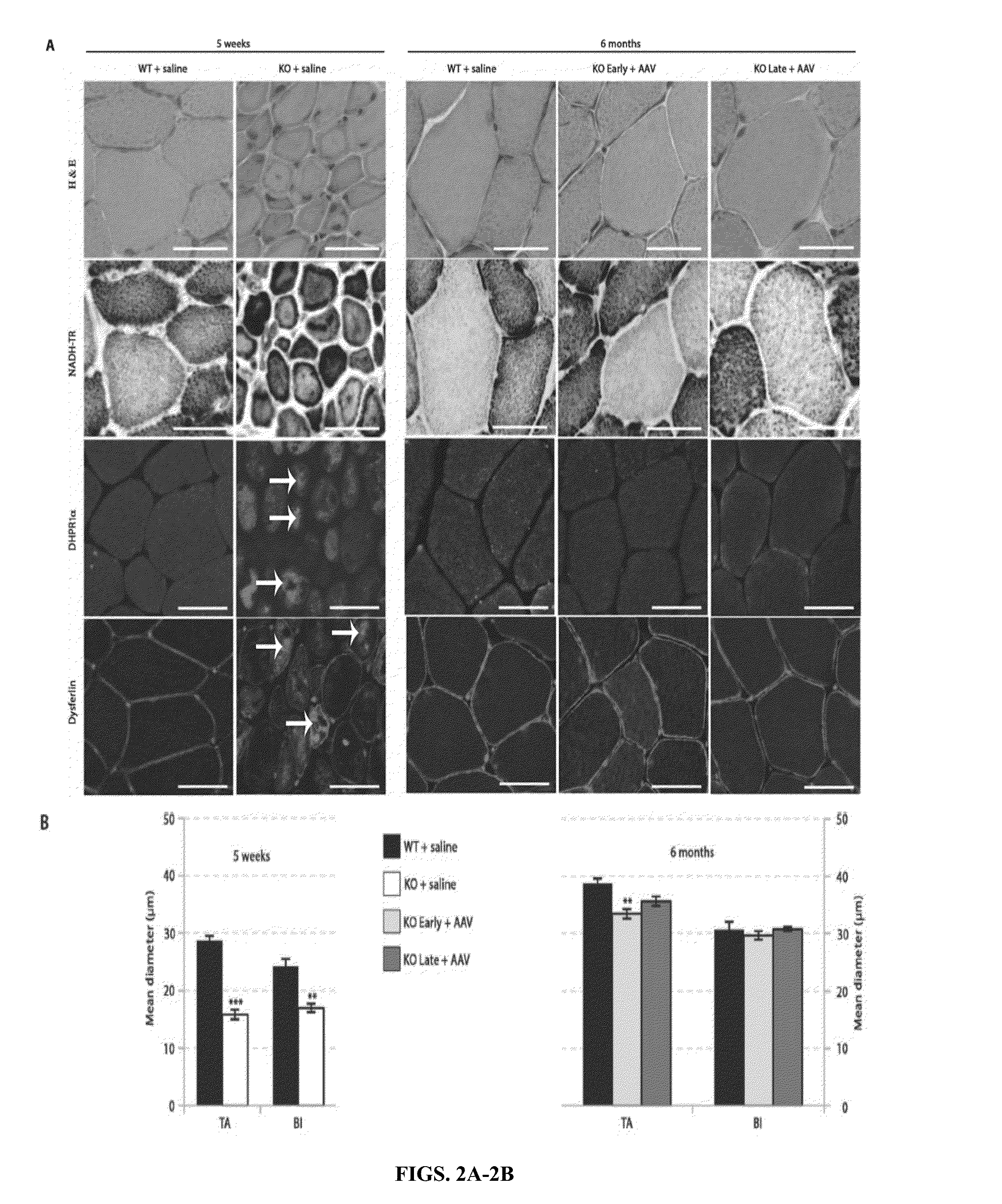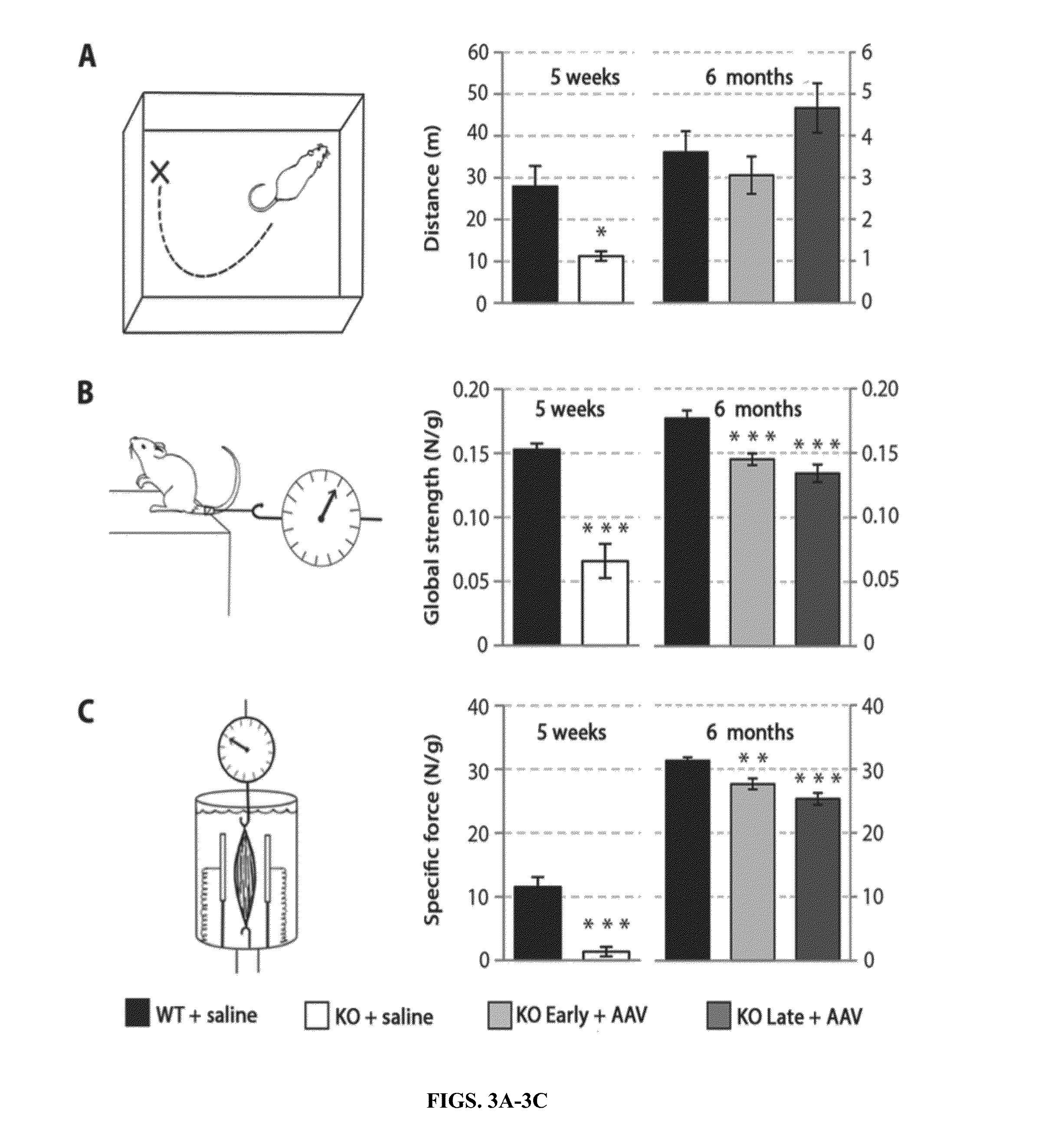Systemic Gene Replacement Therapy for Treatment of X-Linked MyoTubular Myopathy (XLMTM)
a technology of myotubular myopathy and systemic gene replacement therapy, which is applied in the direction of genetic material ingredients, viruses/bacteriophages, peptides/proteins, etc., can solve the problem of no effective treatment for this disease, and achieve the effect of increasing the expression of myotubularin
- Summary
- Abstract
- Description
- Claims
- Application Information
AI Technical Summary
Benefits of technology
Problems solved by technology
Method used
Image
Examples
experimental examples
[0178]The invention is further described in detail by reference to the following experimental examples. These examples are provided for purposes of illustration only, and are not intended to be limiting unless otherwise specified. Thus, the invention should in no way be construed as being limited to the following examples, but rather, should be construed to encompass any and all variations which become evident as a result of the teaching provided herein.
[0179]Without further description, it is believed that one of ordinary skill in the art can, using the preceding description and the following illustrative examples, make and utilize the compounds of the present invention and practice the claimed methods. The following working examples therefore, specifically point out the preferred embodiments of the present invention, and are not to be construed as limiting in any way the remainder of the disclosure.
example 1
Gene Replacement Therapy Prolongs Survival and Restores Muscle Function in Murine and Canine Models of X-Linked Myotubular Myopathy
[0180]Loss-of-function mutations in the myotubularin gene (MTM1) cause X-linked myotubular myopathy (XLM™), a fatal pediatric disease of skeletal muscle with no effective treatment. Described herein is examination of gene therapy in mouse and dog models of XLM™. Systemic delivery of a single dose of a recombinant adeno-associated virus (rAAV) vector expressing murine myotubularin in Mtm1-deficient knockout mice resulted in robust improvement in motor activity and contractile force, attenuated pathology and prolonged survival from under two months to at least one year. Intramuscular and intravascular rAAV-mediated delivery of canine MTM1 in affected XLM™ dogs resulted in similar robust improvement in muscle contractile force, attenuated pathology and prolonged survival. The results presented herein demonstrate that myotubularin gene delivery rescues sever...
example 2
Effects of Systemic AAV-MTM1 on Muscles of Respiration
[0269]The diaphragm is a parachute-shaped skeletal muscle that is the primary muscle used in respiratory inspiration. The diaphragm extends across the bottom of the rib cage, separating the thoracic cavity from the abdominal cavity. During inhalation, the diaphragm contracts, reducing thoracic pressure and volume and causing air to be pulled into the lungs. During exhalation, the diaphragm relaxes and elastic recoil of the lungs occurs. The diaphragm is weakened in those with XLM™, thereby leading to respiratory dysfunction. Given the location of the diaphragm, it is difficult, invasive, and often dangerous to provide local delivery of therapeutics through intramuscular delivery to the diaphragm. It is described herein, that system delivery of MTM1 surprisingly increases the strength and function of the diaphragm in subjects with MTM1 deficiency.
[0270]The studies presented herein measure diaphragm strength using Respiratory Imped...
PUM
 Login to View More
Login to View More Abstract
Description
Claims
Application Information
 Login to View More
Login to View More - R&D
- Intellectual Property
- Life Sciences
- Materials
- Tech Scout
- Unparalleled Data Quality
- Higher Quality Content
- 60% Fewer Hallucinations
Browse by: Latest US Patents, China's latest patents, Technical Efficacy Thesaurus, Application Domain, Technology Topic, Popular Technical Reports.
© 2025 PatSnap. All rights reserved.Legal|Privacy policy|Modern Slavery Act Transparency Statement|Sitemap|About US| Contact US: help@patsnap.com



